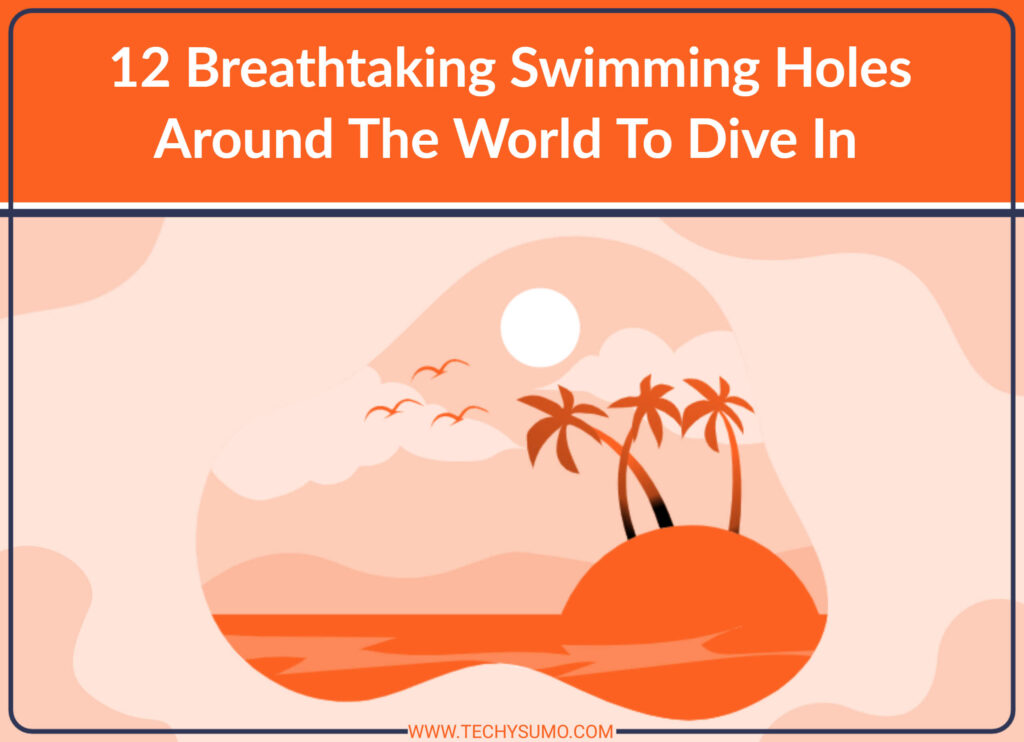Visiting a game reserve creates a serene oasis in our busy and often stressful lives. But with so many game reserves and nature parks on offer worldwide, where should you go? We’ve highlighted just a few reserves to get you thinking …
Table of Contents
- Game Reserves You Must Visit
- #1 – Kakadu National Park, Northern Territory, Australia
- #2 – Aigüestortes i Estany de Sant Maurici, Catalonia, Spain
- #3 – Tierra del Fuego National Park, Patagonia, Argentina
- #4 – The Sabi Sand Game Reserve, Mpumalanga, South Africa
- #5 – Dubai Desert Conservation Reserve (DDCR), United Arab Emirates
- #6 – The Baikal Nature Reserve, South-Eastern Siberia
Game Reserves You Must Visit
#1 – Kakadu National Park, Northern Territory, Australia

A 3-hour drive from Darwin, rugged and remote Kakadu is Australia’s biggest national park. Covering almost 8,000 square miles, its ancient landscapes encompass waterfalls, rocky gorges, serene pools, vast wetlands, and fascinating wildlife. Animals found here include agile or sandy wallabies, crocodiles, wallaroos, flying foxes, river sharks, brown bandicoots, quolls, and flatback turtles.
Kakadu offers its visitors a range of activities. Bush walks and bird watching are all very popular, as is swimming under a spectacular waterfall or in the pristine rock pools in Barramundi Gorge! Scenic flights, visiting Aboriginal art sites, four-wheel drives, and camping are also on offer. An award-winning Yellow Water Billabong cruise is a must! The Mamukala wetlands are a must for bird watchers. Seeing thousands of loud magpie geese foraging for water chestnuts is a truly unforgettable sight!
#2 – Aigüestortes i Estany de Sant Maurici, Catalonia, Spain

Set in the wild and mountainous Pyrenees, this lake-rich Park has been designated a protected Ramsar site since 2007. Its name can be loosely translated as ‘the winding streams/waters and St Maurice lake’. The Park’s elevation ranges between 5,000 feet to glacial peaks of more than 9,800 feet and is home to several species found nowhere else in Spain.
Animals thriving here include chamois goat-antelopes, brown bears, wild boar, ermine, marmot, and roe deer. The griffons, bearded vultures (lammergeiers), golden eagles, capercaillies, rock ptarmigans, snow finches, and black woodpeckers will delight birders. A particularly rare Pyrenean brook salamander or newt is also found here. The Park provides on-site shelters, day trips, excursions, and a cable railway. It’s great for hiking and biking, and snowshoeing and skiing in winter. If you are a lover of swimming then you must visit these natural swimming holes around the world.
Also Read
#3 – Tierra del Fuego National Park, Patagonia, Argentina

A nature reserve called the ‘Land of Fire’ has to be special, doesn’t it? And Tierra del Fuego is certainly a biodiverse paradise! It boasts Argentina’s only paleofiordo, which is a lake formed by glacial action. The Park’s 70,000 hectares consist of forests, peat bogs, rivers, lakes, mountains, and coastal zones.
Bird lovers will be delighted by birds like parakeets, pygmy owls, caracara, vultures, and, of course, the magnificent Andean condor. Its mammals include llama-like guanacos, horses, rabbits, muskrats, foxes, endangered sea otters, controversial non-endemic beavers, orcas, and teeming colonies of penguins. Kayaking, hiking, cruises, 4X4 excursions, horseback tours, and historic train rides are some of the activities on offer.
#4 – The Sabi Sand Game Reserve, Mpumalanga, South Africa

The Sabi Sand Game Reserve shares a border with the world-famous Kruger. It covers 65,000 hectares of pristine wilderness and is known for its mind-blowing leopard, lion, and other predator sightings. Big Five sightings are virtually guaranteed. Spotted hyenas, wild dogs, cheetahs, black-backed jackals, hippos, many antelope species, zebras and giraffes will more than likely feature on your viewing menu.
So if you are after an unbeatable African luxury safari experience, this is the place for you! Night and day game drives and bush walks guided by experienced rangers will ensure you experience once-in-a-lifetime wildlife encounters. If you’re looking for indulgent comfort, impeccable service, and top-notch cuisine, you’ll it all in the best lodges in the Sabi Sand.
#5 – Dubai Desert Conservation Reserve (DDCR), United Arab Emirates

The Dubai Desert Conservation Reserve is a remarkable oasis in the Arabian Desert. Located near Dubai, it spans 87 square miles. It is dedicated to protecting this remote area while bringing tourists closer to its wonders. It is one of the most unique attractions in the United Arab Emirates. The Reserve boasts 57 plant species, 120 birds, and 43 mammal and reptile species. These include the famous Arabian oryx, the spiny-tailed lizard, the caracal, and the fennec fox. With its rolling sand dune landscapes and fascinating wildlife, it’s no surprise that more than five million people visit the Reserve annually. Explore this extraordinary land by desert safari or hot air balloon flights. Camel and horse-riding excursions, and amazing raptor-flying expeditions are also on offer.
#6 – The Baikal Nature Reserve, South-Eastern Siberia

Centered around the world’s biggest and deepest freshwater lake, Lake Baikal Reserve is one of Russia’s premier reserves. Fed by over 300 rivers and streams, it contains 20% of the world’s entire freshwater supply! Its landscapes include pine taiga forests, subalpine meadows, and alpine tundra forests.
The abundant wildlife that abounds here consists of over 800 plant species and 300 animal species. These include bears, sables, reindeer, elk, wild boar, seals, Siberian roe deer, polecats, ermine, and wolves. Lake Baikal’s 75 species of fish include the scaleless golomyanka and a famous white fish called the omul. The Reserve’s 230 species of birds include scoters, shovelers, wading birds, sandpipers, several owl species, and no fewer than seven eagle species! These include golden, imperial, and white-tailed eagles. Ecotourism, birdwatching, wildlife tracking, camping, fishing, biking, hiking, rafting, and canoeing are all on offer. And if you’re a real adrenaline junkie, how about some parachuting, canyoning, or skydiving?
The reserves we’ve highlighted comprise a mere fraction of the amazing choice of game reserves on offer to today’s wildlife travelers. With all these, and many more incredible reserves waiting for you, why delay?






